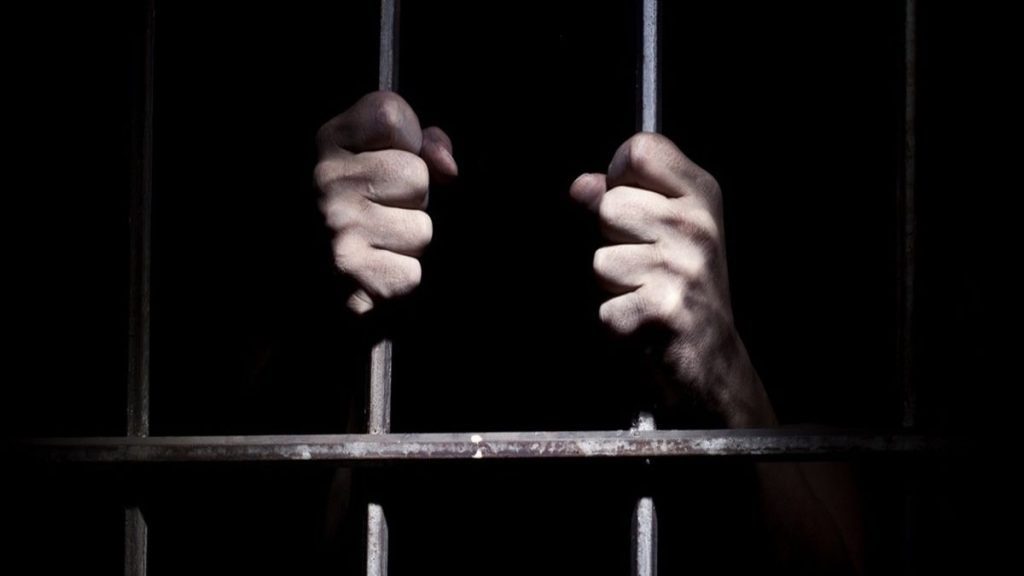The Supreme Court’s release of six convicts in the Rajiv Gandhi assassination case from a Tamil Nadu jail over “satisfactory” behaviour has brought the story of 83-year-old self-proclaimed godman Swami Shradhananda, alias Murali Manohar Mishra, back into the spotlight. Mishra is currently serving a sentence of life in jail in Madhya Pradesh’s Sagar district for burying alive his wife Shakereh, the granddaughter of a former Dewan of Mysore State Sir Mirza Ismail, in 1991.
Shradhananda, who has been behind bars for 29 years, on Wednesday pleaded with the Supreme Court before a bench of Chief Justice DY Chandrachud and Justices Hima Kohli and J B Pardiwala, for his release, seeking parity with the convicts of the Rajiv Gandhi assassination case, reported Times Of India. His counsel, as per the report, that he has already spent 29 years in jail, without any remission or parole.
Also Read: Supreme Court terms forceful conversion a ‘serious issue’, directs Centre to file affidavit by Nov 22
Back in 1991, the murder of Shakereh and the trial of Shradhananda had made national headlines.
What is the Shakereh murder case?
Swayed over Shradhananda, the beautiful granddaughter of the former dewan of Mysore Shakereh had abandoned her husband and Indian diplomat, Akbar Khaleeli, and four daughters – Sabah, Ezmeth, Rehana and Zeebundeh, to start a life with Mishra, according to a 2007 Supreme Court verdict dismissing the convict’s appeal seeking remission of sentence. The verdict was delivered by Justice SB Sinha of the Supreme Court. Mishra had an eye on Shakereh, whom he lured, to get her property and wealth worth crores of rupees.
Shakereh’s mother Taj Namazi had gifted her a property, including a house on Richmond Road in Bangalore, when she married her cousin, Akbar Khaleeli, India’s former envoy to Australia and Iran. This was in the early 1980s. Shakereh used to accompany her husband on his overseas postings.
In 1982, the family came across Shradhananda in Delhi at the residence of a common friend. Shradhananda used to work for their friend, who belongs to a former royal family of Uttar Pradesh, and moved up the ladder from being an errand boy to handling tax and property matters.
He gained the trust of Shakereh and his family with his gift of gab, and they invited him to Bangalore. “This was a fateful invitation that spelt doom for Khaleeli,” said Bangalore Police Commissioner S. Mariswamy to India Today.
As per the SC verdict, Shradhananda started helping Shakereh resolve property matters, and soon the two got into a relationship, with the godman exploiting her desire to have a son by claiming magical powers.
In 1985, Shakereh divorced her Akbar, whom she was married for 21 years, and went with Shradhananda, and the next year, the two got married.
Soon, differences cropped up between the two and in 1991, Shradhananda had decided to kill her. He asked the sevants to make a wooden casket to keep the antiques and ornaments safely, and also asked labourers to dig a pit in the courtyard, saying it was for the purpose of a tank.
In March 1991, he drugged Shakereh giving her sleeping tablets, and put her in the casket and buried her alive in the backyard of her palatial house in Richmond Road to usurp her property, which was valued at over Rs 600 crore in those days.
Sometime in April-May 1991, after one of Shakereh’s daughters, Sabah noticed that her mother was missing, she confronted Shradhananda, who said she had gone abroad to have a baby. However, Sabah was not convinced, and lodged a missing person complaint on June 10, 1992. Sabah, in her complaint, said that she had last spoken with Shakereh over telephone on April 19, 1991, and Shakereh’s mother Gauhar Namaze, had last met her six days earlier.
After three years of investigation by Bangalore police, the cops zeroed in Shradhananda. Later, a detective of the Central Crime Branch had a servant from the Shakereh’s home confess to him in a drunken state that he had helped Shradhananda kill his royal wife.
In 1994, Shakereh’s body was exhumed and the process was videographed. Investigators found that she was killed after she executed a general power of attorney and a will in favour of Shradhananda.
On April 30, 1994, Shradhananda was arrested based on the statements of the servants.
Also Read: Rajiv Gandhi assassination case: Supreme Court orders release of all convicts serving life sentence
In 2000, a trial court had sentenced him to death, and in 2005, the Karnataka High Court confirmed the death sentence. He then appealed to the Supreme Court, which gave a split verdict in 2007, and in 2008, his death sentence was modified to “imprisonment for his whole lifetime without any remission”.
Originally jailed in the central prison in Bengaluru, he was transferred to Sagar Central Jail in 2011 at his own request.
Jail authorities have said Shradhananda, who is kept in a barrack for elderly inmates, is writing to the President pleading for his release on grounds of “good conduct”.

